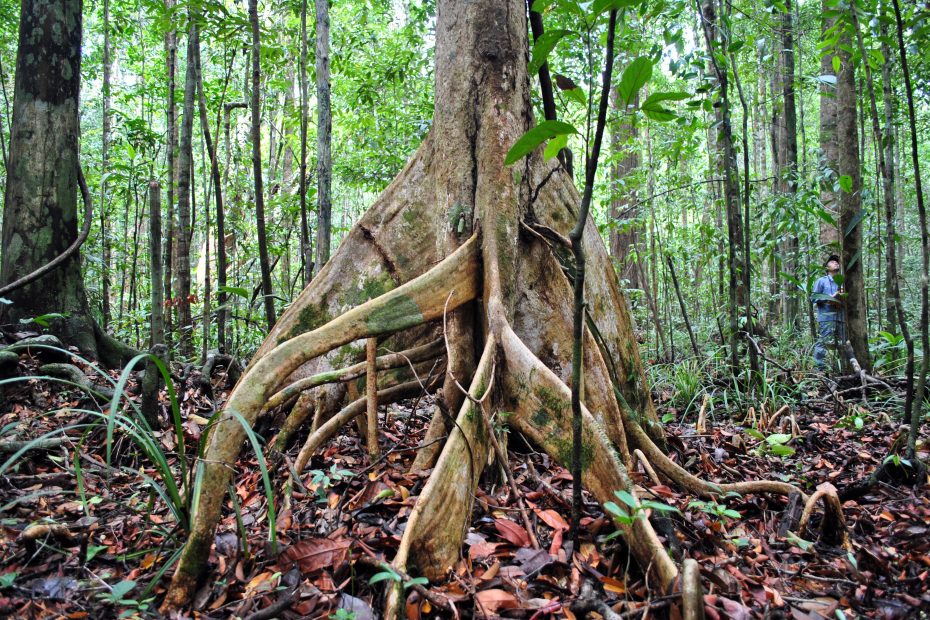## Introduction to Brunei
Brunei is a small country located on the north coast of the island of Borneo in Southeast Asia. Though it only covers an area of about 2,200 square miles, Brunei is renowned for its prosperity and quality of life. Often referred to as the “Jewel of Southeast Asia”, Brunei boasts stunning natural scenery, a fascinating history and culture, and great economic prosperity thanks to its abundant oil and gas reserves.
## Geography and Climate of Brunei
Brunei is divided into two parts – a coastal region and an inland region covered by mountains and forests. The climate is tropical, with high temperatures and humidity year-round. The coastal plains along the South China Sea are swampy and prone to flooding during the monsoon season. Inland, the climate remains hot but becomes more humid at higher elevations.
## History and Culture of Brunei
### Early History
The Bruneian Empire was founded in the 14th century. Before that, Brunei was under the influence of powerful regional kingdoms like Majapahit and Srivijaya. Islam was introduced during this period and soon became the dominant religion. By the 15th century, Brunei controlled the entire island of Borneo and parts of the Philippines.
### Colonial Era
But Brunei’s golden age ended when Spain attacked in 1578. Brunei then came under British influence and became a British protectorate in 1888. The discovery of oil in 1929 helped revive Brunei’s fortunes.
### Independence
The British withdrew from Brunei in 1984, and the country gained full independence. But the sultanate remains the major political force.
## Government and Politics of Brunei
Brunei is a constitutional sultanate ruled by Sultan Hassanal Bolkiah. He has absolute power over the government and parliament. There are no elections, and political parties are banned. However, the government provides citizens with extensive social benefits thanks to oil wealth.
## Economy of Brunei
### Oil and Gas Industry
Oil and gas account for over 90% of Brunei’s GDP. It has the fourth largest oil reserves in Southeast Asia. Shell has been involved in Brunei’s oil and gas industry for over 80 years. But production has been declining, prompting economic diversification efforts.
### Other Industries
Besides oil and gas, agriculture, banking and tourism also contribute to Brunei’s prosperity. But the economy remains heavily dependent on hydrocarbon exports.
## Tourism in Brunei
Brunei may be small, but it boasts pristine rainforests, exotic wildlife, vibrant Islamic culture, cuisine, architecture and more for visitors to discover.
### Top Attractions
Top sites include the striking Jame’Asr Hassanil Bolkiah Mosque, Kampong Ayer water village, Ulu Temburong National Park, Istana Nurul Iman palace, and the Royal Regalia Museum.
### When to Visit
The best time to visit Brunei is from October to February during the dry season. Avoid the rainy season from March to May.
## People and Society of Brunei
Ethnic Malays make up around two-thirds of Brunei’s population. Minority groups include indigenous tribes, Chinese, and expats. Islam is the official religion. Malay is the official language, but English is widely spoken. Brunei provides citizens with free healthcare and education. The literacy rate is an impressive 97%.
## Environment and Wildlife of Brunei
Over 70% of Brunei’s land area is covered by pristine tropical rainforest teeming with diverse flora and fauna. The country boasts over 3,000 species of plants and animals, including endangered ones like proboscis monkeys, Bornean orangutans, and hornbills. Ulu Temburong National Park protects Brunei’s lush rainforests.
## Brunei’s Future Prospects
Brunei seeks to diversify its economy and achieve its 2035 vision of being recognized for economy, education, quality of life. But fluctuating oil and gas prices, declining reserves, reliance on imports, and aging infrastructure pose challenges. Still, Brunei remains stable and prosperous compared to neighboring countries.
## Conclusion
With its wealth of oil and gas, stunning landscapes, vibrant culture and way of life, Brunei is truly the “Jewel of Southeast Asia.” Though it faces some economic uncertainties going forward, prudent planning and widening cooperation with regional partners can ensure it retains its prosperity in the future. Brunei may be small, but it shines bright.
FAQs
What is Brunei most known for?
Brunei is most known for its oil and gas reserves, pristine rainforests, and prosperous economy and quality of life. It’s often called the “Jewel of Southeast Asia”.
What is the religion in Brunei?
The official religion of Brunei is Islam. Around two-thirds of Bruneians are Muslim, mainly Sunnis. Minority religions include Christianity and Buddhism.
What language is spoken in Brunei?
The official language is Malay. However, English is also widely spoken, especially in business and education.
What is the currency of Brunei?
The currency of Brunei is the Brunei dollar (BND). The Brunei dollar is pegged to the Singapore dollar at par.
What is the capital of Brunei?
The capital and largest city of Brunei is Bandar Seri Begawan. It is located on the Brunei River on the northern coast.
